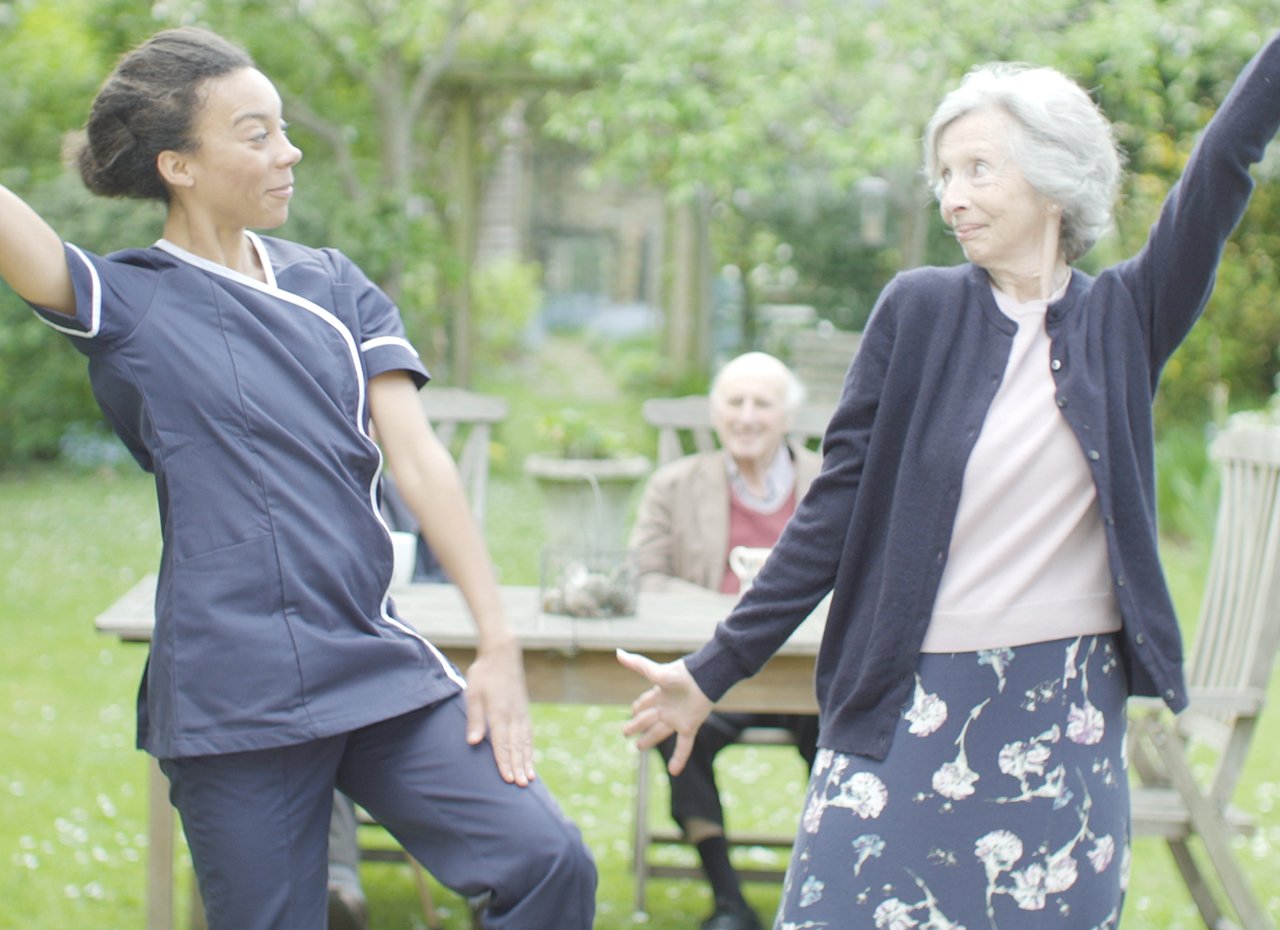The future of seniors and digital technology

Dance with us through the future digital trends that help seniors live their best lives today and every day.
The terms "senior" and “digital” are rarely mentioned together. France's senior citizens are actually quite "digitalized". In fact, 84% of them have access to the internet and 26% own tablets. In the United States, 67% of seniors use the internet and 33% own tablets.
Seniors use digital technology to communicate with family (ex. WhatsApp and Facebook), access leisure and cultural activities (via game applications) and access information (reading or watching the news). The younger cohort purchases online as well.
In addition to smartphones and tablets which many of us already use, there are other, specially adapted devices that support seniors as they age. For example:
- Household sensors detect fall risks and quickly alert loved ones in case of danger
- Smart objects, like drinking glasses and pill boxes, make it easier to track a person’s health and prevent the risk of malnutrition or dehydration
- Wearable devices, like smart watches, guarantee security and peace of mind for seniors and their loved ones
Family and friends play a key role supporting seniors as they age. Here again, digital technology can really add value and have a strong, positive impact on quality of life. It encourages communication between seniors and their social circle. It also makes it easier for caregivers to intervene when needed, limiting the consequences related to a fall, for example.
Technology continues to evolve and improve particularly in the area of voice (ex: voice assistants and voice recognition). Voice technology helps seniors interact more simply and intuitively with technology, thereby reclaiming some of their independence. Today, for example, voice assistants can help stressed-out seniors relax by playing their favorite music.
Beyond these technological evolutions, the senior market is undergoing transformation.
A new generation has arrived: the Baby Boomers. As a generation defined by its emphasis on independence, Baby Boomers are forcing us to re-think our approach to aging. Their wishes and desires always come first, and they want to age in place (94% of people aged 55 and older want to age in their home).
The massive digitalization of our society means the seniors of tomorrow will view technology as a real solution to maintain their autonomy and health. They are willing to accept smart objects that track their activities and detect falls, as long as they are free to choose which solutions to use. We must think of homes as a constantly evolving space in which household automation, information and communication, remote alarms, and smart objects all co-exist without restraining domestic freedoms and enabling seniors to age in place.
These digital developments reinforce market trends that are already significant: the desire to stay at home means that those seniors who do enter senior living communities tend to be increasingly dependent, impacting our teams, as well as our clients’ teams and business model. This environment opens new paths for structural development in the market. In France, as in the United States, our clients are looking to become reference centers for seniors in a given geographic area thus defining a new work culture and business model. Digital technology can facilitate communication and the implementation of this new model.
In the short-term, digital innovations bringing real added value (ex: cost savings) or efficiency and ease will be the priority. In the medium-term, aging at home is the main "disruptor” that digital technology will focus on, and which will push the market to reinvent itself.






